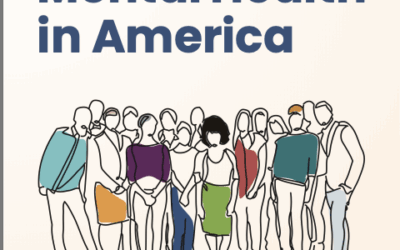**Trigger Warning: Violence/Abuse**
As the COVID-19 pandemic has spanned over the past three months, entire families are quarantining together. As I discussed in my last blog post, numerous college students around the country are struggling with the transition from college life back to living at home. Amidst one of these struggles is the chance of returning to a household that the college student has faced abuse in the past, or where they face increased chances of being abused by a member of their home.
Albeit all age groups are impacted by the pandemic and violence, it is worth highlighting the adverse experiences college students and young adults may be facing during the pandemic. For many survivors of abuse in childhood, going to college served as an escape from an emotionally, physically, and/or sexually abusive home life. Given the financial strain, job loss, death and grief, and increased social isolation during the virus, experts also worry that the heightened stress might increase violence. As soon as my university started receiving updates from teachers about Zoom calls, packing up belongings and returning home, and completing coursework from home, I immediately thought of the students who would be returning to an unsafe environment.
College students who have no choice but to return to their homes upon their school closures may be subject to potentially abusive situations. I worry about my peers and fellow college students across the country who are confined to childhood homes, with little ability to seek refuge from the situations. As the virus has had damaging impacts on the economy, students who may have wanted to find alternative housing options may not be able to, as money is tight for so many right now. My heart breaks for the students who were able to leave homes that subject them to abuse, yet due to the circumstances, returning to their homes is the only feasible option. My heart breaks for those who have found a new, safe home at college and come far in their healing (and those who have not), and have to return to a traumatizing home situation.
While many colleges are offering on-campus stays for students in extenuating circumstances, not all students are granted permission to reside at their school. Due to social distancing guidelines and various university policies, not everyone is able to stay on campus, as international students and students with financial needs are often prioritized. In an article from Princeton University, one student said they would “do anything to not go home,” and “would feel unsafe at the only place where I could find a bed.”
Again, this is not to say that children and adults alike who do not have the privilege to attend college are not at increased risk, as violence impacts all demographics and age ranges. In fact, since teachers and guidance counselors are unable to report signs of abuse, there is a projected “child abuse epidemic” that could result from the isolation of the virus, as predicted by Dr. Nina Agrawal in a New York Times article. The normal 20% of child abuse reports from educators will not be seen as children and adolescents are being kept home in potentially abusive situations. Furthermore, for survivors of domestic abuse, shelters are overcrowded and emergency rooms are flooded right now, leaving those seeking assistance in especially isolating positions.
During these trying times for survivors and current victims of abuse, in all of its forms, there are things allies can do to keep an eye out for abusive situations and support loved ones. There is hope for supporting survivors and preventing violence during COVID-19 and beyond. If you, as an ally, are concerned about a particular family, you can offer to provide support—whether that be offering a helping hand or through meals, books, and clothes. If you feel comfortable doing so, check-in on your loved ones through technology and offer to listen if someone opens up to you about an adverse home situation, as emotional support is invaluable. You can also report to child protective services or call one of the hotlines I’ve listed at the bottom of this page as well if you are seriously worried about an individual or family’s safety.
As an ally, I have spent the pandemic receiving training and serving as a volunteer for the Crisis Text Line, and I could not recommend this experience enough. If you are looking for opportunities to be of service to those affected by violence and abuse, I highly recommend researching a hotline service or nonprofit organization that speaks to you, especially during the trying times of the COVID-19 pandemic. Check out this article from the University of Southern California if you want more information about volunteering on a hotline.
That being said, whether you are an ally and/or a survivor, reading articles like this one, and caring for your loved ones can be emotionally draining. Focusing on your self-care is as important as ever right now during times of social isolation, and remember to set boundaries on caring for others and take breaks when you need them. You cannot pour from an empty cup and you only want to commit to volunteering or supplemental opportunities when you feel fully ready to do so.
For survivors and allies seeking support and resources, I have compiled a comprehensive list of services and information below. For more in-depth information for communities, organizations, and survivors, I recommend this list from FUTURES Without Violence with resources specific to COVID-19.
Please feel free to share these resources to help protect and provide support to survivors of violence during these increased times of isolation. If you are in immediate danger, call 911.
Hotlines and Direct Support Services:
Virginia Sexual and Domestic Violence Action Alliance: 24/7, confidential, and free
- Call 1-800-838-8238 or text 804-793-9999 for safety planning and support from the Family Violence and Sexual Assault Virginia Hotline, or if you’re unable to speak safely you can live chat here
- Call 1-866-356-6998 or text 804-793-9999 for support via the LGBTQ Partner Abuse and Sexual Assault Helpline, or if you’re unable to speak safely you can live chat here
Crisis Text Line: 24/7, confidential, and free
- Free texting service that can be accessed by texting HOME to 741741 for free, 24/7 crisis counseling
Childhelp National Child Abuse Hotline: 24/7, confidential (with mandatory reporters if applicable), and free
- Call or text 1-800-4-A-CHILD(1-800-422-4453) for help, or if you’re unable to speak safely you can live chat here
- For more information about Childhelp, you can access their website here
National Domestic Violence Hotline: 24/7, confidential, and free
- Call 1-800-799-7233 or 1-800-799-7233 for TTY, or if you’re unable to speak safely, you can log onto thehotline.org or text LOVEIS to 22522.
- Para información en español, visita la página “En Español.”
- For Deaf Services, you can contact nationaldeafhotline@adwas.org or by calling 1-800-787-3224(TTY) or 1-855-812-1001(Video Phone)
- Staying Safe During COVID-19 Resource – here
National Sexual Assault Hotline: 24/7, confidential, and free
- Call 800.656.HOPE(4673), or if you’re unable to speak safely, you can log onto live chat here with a confidential staff member
StrongHearts Native Helpline: 7:00 a.m. to 10:00 p.m. daily, confidential, and free
- Call 1-844-7NATIVE (1-844-762-8483) to speak with an advocate
- Access a “what to expect when you call” information page here
Trans Lifeline Peer Support Hotline: 24/7, confidential, and free
- Call 877-565-8860 to speak with an operator who identifies as trans or gender non-conforming/questioning
- More information on the Trans Lifeline and its services are available here
National Helpline for Men Who Were Sexually Abused or Assaulted: 24/7, confidential, and free
- Log onto live chat here with a confidential staff member
Sex Workers Outreach Project: 24/7, confidential, and free
- Call (877)-776-2004 to access a volunteer-staffed warmline where current and former sex workers, activists and others seeking peer support can access direct support
- More information on the Sex Workers Outreach Project (SWOP-USA) can be found at this website
Useful Information, Apps, and Self-Care Resources:
- 2020 Action Alliance Directory of Sexual & Domestic Violence Member Agencies, for a comprehensive list of advocacy services in the state of Virginia
- Pods and Pod Mapping Worksheet, for identifying support people in your life
- Coronavirus Aid, Relief, and Economic Security (CARES) Act information
- myPlan App, for helping with safety decisions regarding intimate partner violence
- “Staying Safe During COVID-19”, article and resources from the National Domestic Violence Hotline
- “Ways to help children and adults living with violence” information and tips from FUTURES Without Violence (also available en Español)
- Womenslaw.org, legal resources for survivors and resources that help
- National Sexual Violence Resource Center (NSVRC), information for survivors, advocates, friends, family, and press inquiries
- Stop It Now, resources for parents and caregivers to keep children safe from sexual violence and abuse
- National Adult Protective Services Association (NAPSA), serving older adults and adults with disabilities who are in need of assistance
Anna Marston, Intern
Mental Health America of Virginia



